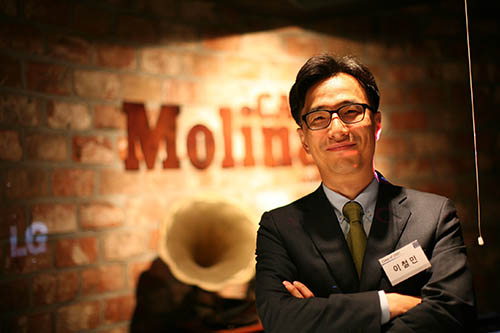Asia / South Korea
The evolution of private equity in Korea
Chulmin Lee is a co-founder and managing partner at VIG Partners, a private equity firm in South Korea that invests in mostly mid-sized firms across multiple industries in the Korean market. A 2001 graduate of Fuqua’s Daytime MBA program, Lee is also president of the school’s Korean Alumni Association.
Lee shares some of his insights on the Korean economy and the investment challenges and opportunities in this Fuqua Q&A.

Describe the private equity climate in South Korea. What are the most exciting investment opportunities?
Private equity is a very young industry in Korea, one that has only been around since 1998, just after the Asian financial crisis. Market dynamics at that time were such that Chaebols (South Korean multinational business conglomerates) and other major local companies were swamped with bad debt and therefore looking to sell assets. The who’s who of the global private equity industry swooped into the market to take advantage of this opportunity. Everyone from TPG to Lone Star and Carlyle broke into Korea as the system lacked the necessary capital to push ahead. Then 2005 was another watermark year. That was when the Korean government established the legal frameworks for its own private equity industry.
Until 2008 when the whole industry was devastated due to the global financial crisis, there was another M&A market boom with the abundant liquidity from global and domestic private equity firms and Chaebols that were expanding their portfolios aggressively. The industry needed a few years to recover, and most foreign firms left Korea. Since 2012, global firms have started to reenter Korea and are competing fiercely with domestic and regional firms. For deals involving enterprise valued at $300 million or more, global and regional firms are very active. Domestic players are focusing more on mid-to-small market deals with values less than $300 million.
The private sector offers a lot of opportunity to find targets. You have a lot of successful businesses in Korea started by individuals during Korea’s high economic times of the 1970s and 1980s. In some cases there is no succession plan in place for the next generation’s management team. Korea differs from its neighbors, where the climate is very different. In Japan, for example, large banks have more power, so in the current environment of low interest rates, would-be target companies are kept strong and able to stave off acquisition or buyout. China is also not attractive due to heavy regulation that only allows for minority investments. That makes Korea the second largest buyout market in Asia Pacific, behind only Australia.
A lot has changed in the world since you co-founded your firm in 2005. How will events such as China’s economic transition affect your firm, your industry and your country?
One benefit of China as a neighbor is that Chinese consumers buy lots of Korean consumer goods and services. Chinese companies also are buying Korean assets in food, entertainment and finance. This is with the goal of learning as well as gaining access to overseas markets. It is a lot harder for Chinese companies to buy Japanese or U.S. assets due to regulation and cultural barriers, but in Korea deals can get done much easier. So Chinese investors have truly burst onto the scene in Korea.
These days, many young Korean people are learning Chinese. We cannot live without China anymore. Young people are curious about the system and want to be exposed to the culture. The influence from China is much bigger than before. But North Korea and China are allies so geopolitically there is tension. There are rumors that the Chinese Government is controlling the number of tourists to Korea and are banning some Korean TV shows. In addition, it is said that Chinese companies’ M&A activities in Korea cannot be easily approved by the Chinese government. In the long run, politically Korea will continue to learn more from China and keep balance between China and the U.S. Koreans want to study abroad in China and overall they want to understand how to benefit from China’s continued growth.
International investment can require a lot of cross-cultural communication. How do you bridge cultural gaps in your work?
Korea is not very active in cross-border deals. There have been many failures on the acquisition side, so the question remains whether Korean companies are really ready to control overseas assets. In general, Korean corporations are not very experienced in running independent businesses outside Korea.
I believe outbound M&A activities will be more popular in the future, but integration will remain a substantial challenge. Finding the right target and acquiring is the easiest part, as Korean investors are very capable and experienced in that area. But Korean companies, including private equity firms, lack the experience in running the acquired company. Korea in this regard needs more time and more successful cases.
However, the situation is becoming more favorable for outbound M&As. Unlike 15 years ago when most leaders in the Korean M&A market were foreigners from London or New York, now we have more Asian people who trained under them and became leaders. They are making most of the decisions. There are many similarities across Asian cultures so it is getting easier to influence and persuade. For example, our firm recently acquired the leading massage chair company in Korea. Massage chairs are very well known across Asia, but many western executives have never even seen one. So we found it was not easy to attract co-investors with western leaders.
You were a manager and a project leader before moving into your current role. What’s one valuable and useful lesson you have learned about leadership?
Transparency! In Asia it is important to deliver messages clearly to managers and professionals. This way they will follow directions properly. In addition to leading to desired outcomes, clear directions help motivate subordinates properly. If something is hidden or unclear, this will create trouble later.
